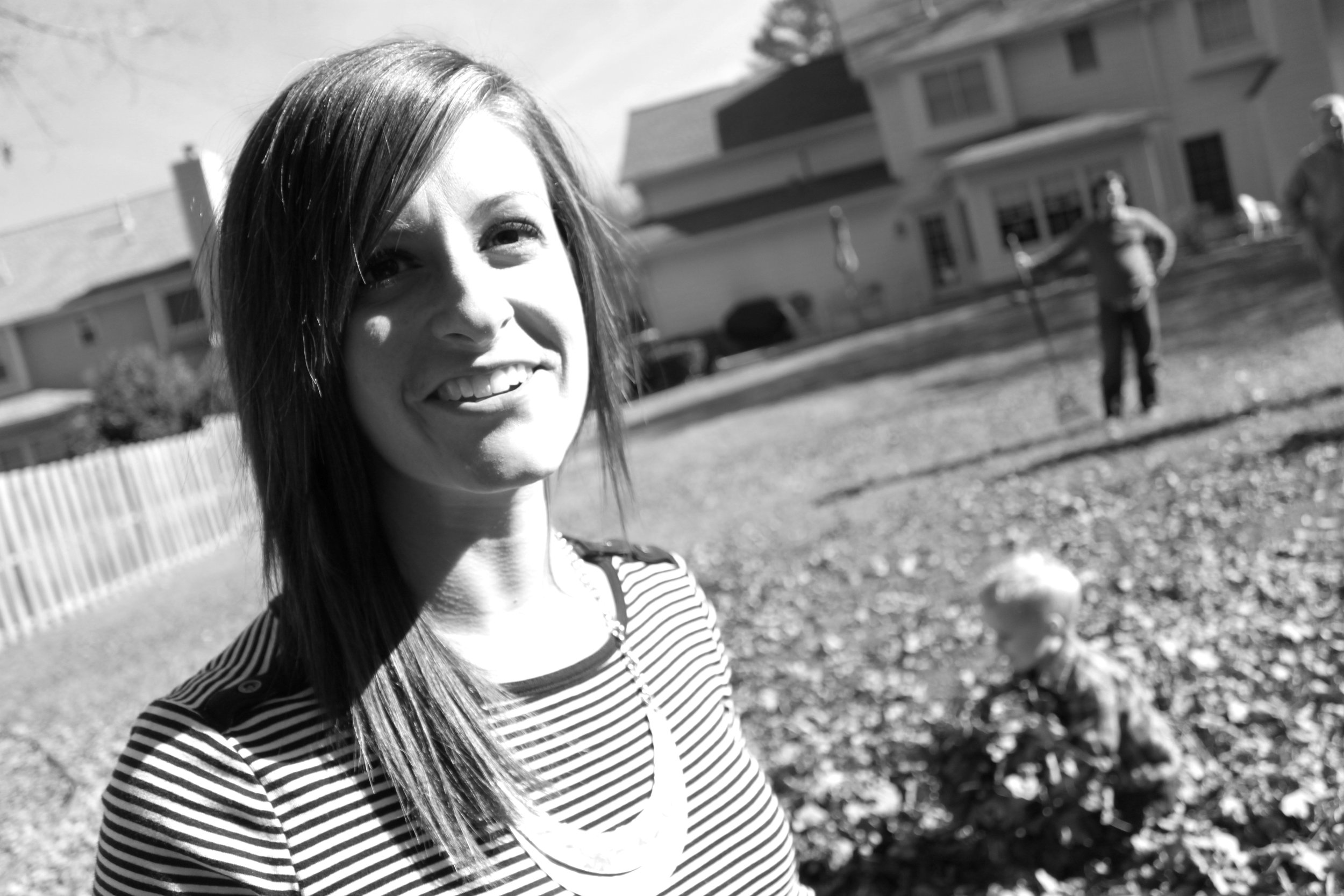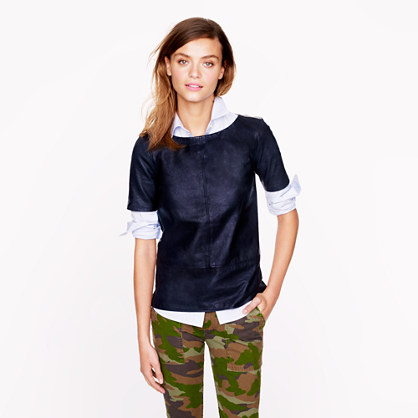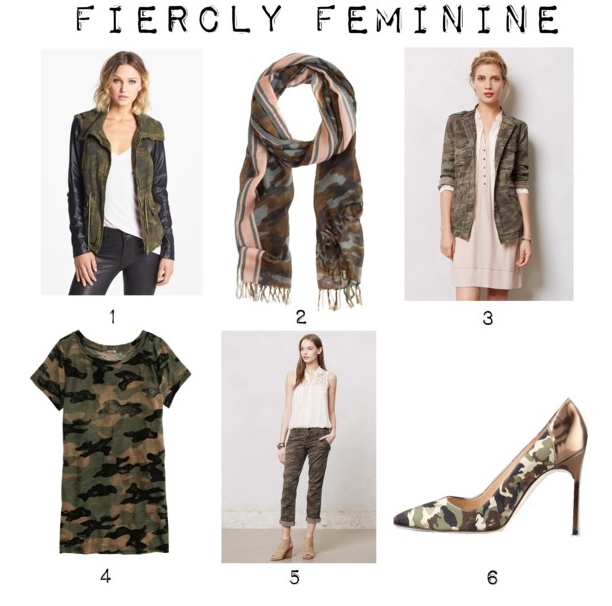People often ask me how to start freelance writing. I always try to respond with a clear, concise, and uncalloused answer—just like Kim Green did for me.
But the truth is—this job isn't for everyone. And sometimes, this "job" pays so little, that it feels like I need to get another job. And while there are many reasons people want to write for a living, there are just as many reasons why they shouldn't.
For this post, I turned to four freelance writers I admire, and asked a simple question: Why shouldn't someone become a freelance writer? Megan Pacella, Jennifer Bradley Franklin, Liz Riggs, and Christina Vinson all came to the table with different answers. Hopefully, together, we can dispel some of the myths of this profession and clarify the risks you take on as a writing entrepreneur.
You shouldn't be a freelance writer because you want to make your own schedule.

MEGAN: Your schedule is actually going to get out of control once you build up several clients. Without the job description or boundaries to say, "This deadline is too short," you will frequently end up turning around long stories or editing projects with just a few day's notice.
Too often, on Thursday nights when your besties are watching Grey's Anatomy (Oh, wait? Is that just me? I think everyone else quit watching in 2008), you'll be plugging away in front of your computer. You'll check your emails on vacation, and you'll work for at least a few hours every holiday while your family hangs out together around the kitchen table. That's not to say that there are no vacation days. But for the most part, being a freelancer means being extremely flexible.
Megan Pacella is a writer and editor based in Nashville, Tennessee. She's done everything from restaurant reviews to small business profiles to full-length features to marketing copy. She loves to travel, cook and cuddle up with her golden retriever. Megan also has a sweet haircut and is an incredibly thoughtful wife and friend.
You shouldn't be a freelance writer because you think it sounds glamorous.
 JENNIFER: The reality is, freelancers (especially those who get to write about food, travel, fashion, etc...) do get to do some really cool things. They get to try new restaurants, see far flung parts of the world, interview interesting designers, test out spa services, etc... BUT if you think those fun bits are going to be the lion's share of your "job," you're sorely mistaken.
JENNIFER: The reality is, freelancers (especially those who get to write about food, travel, fashion, etc...) do get to do some really cool things. They get to try new restaurants, see far flung parts of the world, interview interesting designers, test out spa services, etc... BUT if you think those fun bits are going to be the lion's share of your "job," you're sorely mistaken.
Being a freelancer is about running a business. You have to handle invoicing, accounting, pitching, marketing, maintaining relationships—and, truth be told, those fun assignments likely won't fully pay your mortgage. You'll probably need to take on some less glamorous jobs to make it shake out to a livable income AND you have to be willing to hustle. All. The. Time. It's a lifestyle that not everyone's cut out to lead. [Side note: it helps to have a thick skin. You'll get more rejections than assignments, especially at first, so it helps to have enough drive to push through that.]
Jennifer Bradley Franklin is an Atlanta-based writer and journalist. Her work has been featured in People, All You, American Airlines Magazine, Alaska Airlines, Daily Candy, and a long list of other publications. She also gives incredible travel-writing seminars.
You shouldn't be a freelance writer because you've "always liked writing."
 LIZ: Liking writing and making money off of it are two totally different things. The great part about freelancing is that you can pick and choose your own assignments (although, actually getting the assignments does seem to be even trickier than imagined), but the likelihood of being paid cash-money to do it isn’t great (at least at first).
LIZ: Liking writing and making money off of it are two totally different things. The great part about freelancing is that you can pick and choose your own assignments (although, actually getting the assignments does seem to be even trickier than imagined), but the likelihood of being paid cash-money to do it isn’t great (at least at first).
As far as “liking writing” and then “going freelance” is concerned: just stop. If you spend all your free time and Saturday mornings and late nights blogging, writing articles that you hope will be published, reading magazines and websites and stalking editors—then maybe it’s time to go freelance. But if you’re just thinking you’d like to put your paper-writing skills into a paying profession, try writing 1,000 words a day for at least a month and then see how you feel. Fo reals! You may be like YES, IT’S TIME! I CAN’T STOP WRITING AND NOBODY CAN STOP ME! Or, you may be crying on the floor of your bedroom because you don’t want to look at your computer screen for one more minute.
Liz Riggs, also known as @riggser, is a freelance writer in Nashville, Tennessee. Her writing has been featured in Relevant Magazine, The Huffington Post, Portable, American Songwriter, among others. She's also really funny. I mean, just check out her bio. Liz likes macaroni and cheese. And one time, I posted pictures of her face all over Georgia Tech's campus.
You shouldn't be a freelance writer because you think it sounds easy.
 CHRISTINA: Freelance writing is by far the most difficult job I've ever had, and also the most rewarding. Suddenly, you're not only your boss, but also your own accountant, assistant, communications expert, social media manager, business developer, and so much more.
CHRISTINA: Freelance writing is by far the most difficult job I've ever had, and also the most rewarding. Suddenly, you're not only your boss, but also your own accountant, assistant, communications expert, social media manager, business developer, and so much more.
There are many days where I don't do much writing at all, but am working on invoicing, networking, interviewing, and finding more gigs. It's not just about writing, it's also about owning a business -- and you have put a tremendous effort into both. You won't start out knowing everything, and this job is certainly never easy. But it's so rewarding. My mantra each day is based what Maya Angelou said, "I did then what I knew how to do. Now that I know better, I do better."
Christina Vinson is a freelance writer based in Nashville, Tennessee. She's written for The Christian Post, Bearings, Taste of Country, Native, and others, all while writing really thoughtful web content for clients across the country. She's also written back-cover copy for books, which I find fascinating. Christina lives with her husband in East Nashville and visits her twin sister, Nicole, as much as possible. She also wrote about how I said "bullshit" once.
FINALLY: Just because these four women gave you four reasons not to do the job we've all decided to do—doesn't mean you shouldn't do it at all. In fact, all four women also told me why you SHOULD be a freelance writer. Stay tuned for part II.



 JENNIFER: The reality is, freelancers (especially those who get to write about food, travel, fashion, etc...) do get to do some really cool things. They get to try new restaurants, see far flung parts of the world, interview interesting designers, test out spa services, etc... BUT if you think those fun bits are going to be the lion's share of your "job," you're sorely mistaken.
JENNIFER: The reality is, freelancers (especially those who get to write about food, travel, fashion, etc...) do get to do some really cool things. They get to try new restaurants, see far flung parts of the world, interview interesting designers, test out spa services, etc... BUT if you think those fun bits are going to be the lion's share of your "job," you're sorely mistaken. LIZ: Liking writing and making money off of it are two totally different things. The great part about freelancing is that you can pick and choose your own assignments (although, actually getting the assignments does seem to be even trickier than imagined), but the likelihood of being paid cash-money to do it isn’t great (at least at first).
LIZ: Liking writing and making money off of it are two totally different things. The great part about freelancing is that you can pick and choose your own assignments (although, actually getting the assignments does seem to be even trickier than imagined), but the likelihood of being paid cash-money to do it isn’t great (at least at first). CHRISTINA: Freelance writing is by far the most difficult job I've ever had, and also the most rewarding. Suddenly, you're not only your boss, but also your own accountant, assistant, communications expert, social media manager, business developer, and so much more.
CHRISTINA: Freelance writing is by far the most difficult job I've ever had, and also the most rewarding. Suddenly, you're not only your boss, but also your own accountant, assistant, communications expert, social media manager, business developer, and so much more.

 Nashville's Library. My favorite workspace.
Nashville's Library. My favorite workspace.